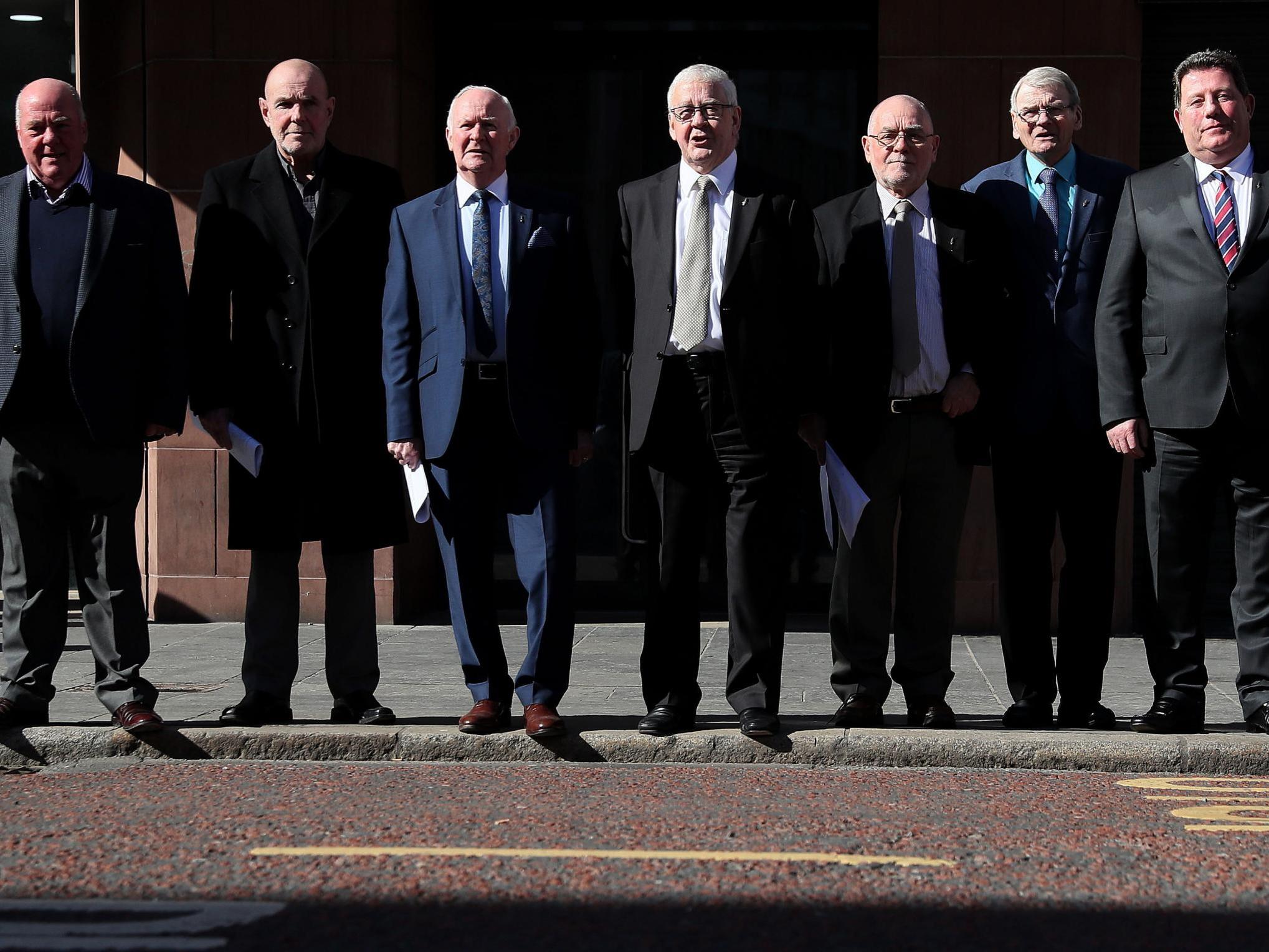Who are 'The Hooded Men' and has their quest for justice come to an end?
Detained without charge during the Troubles, 14 Northern Irishmen insist they were victims of torture at hands of British Army

An appeal by the Irish government on behalf of “The Hooded Men” has been rejected by the European Court of Human Rights (ECHR).
The 14 Northern Irishmen maintain they were tortured after being detained by the British Army and the Royal Ulster Constabulary at the height of the Troubles in 1971, a charge the UK government has always denied.
They were among 342 people picked up under Operation Demetrius, which gave soldiers the right to carry out internment without trial, a controversial practice many felt too extreme and which troops were allegedly attempting to execute when the events that became the Ballymurphy Massacre unfolded.
The 14 were chosen for “special treatment,” according to Amnesty International, and subjected to the notorious “five techniques” of interrogation, an order that would have been authorised at a high level.
They were forced to wear hoods so they could not see in front of them and thrown to the ground from low-flying helicopters, forced into stress positions, made to listen to disturbing white noise, subjected to sleep deprivation and deprived of food and water.
“The men were severely beaten, and when they collapsed, the beatings would start again,” Amnesty states.
“Some were still black and blue with bruises. Some felt they were on the brink of insanity – one alleged he tried to kill himself by banging his head against some metal piping in his cell.”
None of the men were ever charged with a criminal offence.
Ireland made history by becoming the first country to take another to the European Commission on Human Rights in 1976 over the incident, with the body rejecting the UK’s denial of torture before their initial ruling was overturned on appeal.
The men had been the victims of “inhuman and degrading treatment” but not torture, the commission found. Amnesty argues this ruling paved the way for the CIA to employ the five techniques against suspected members of al-Qaeda during the War on Terror.
The case was left that way for decades before declassified documents revealed the existence of the Ballykelly interrogation centre in 2013.
A year later, a documentary by Ireland’s RTE, The Torture Files, cast new light on the British government’s knowledge of a “torture” policy being enacted in Northern Ireland as revealed in a letter between the home secretary, Merlyn Rees, and the prime minister, James Callaghan.
The Irish government subsequently confirmed it would ask the ECHR to revise its view in light of the new evidence, concealed first time around.
Represented by defence lawyer Amal Clooney, the men’s hope of acknowledgement received a fresh setback with Tuesday’s ruling.
“This judgement is disappointing, we had hoped the Grand Chamber of the European Union would have corrected this injustice in that forum, for the sake of the integrity of the court and survivors of torture all over the world,” they said in a statement.
“We are supposed to be living in an era where human rights litigation is victim-centred. It is disappointing that the decision reached by the Grand Chamber was taken without first affording the men an opportunity to address the court in their capacity as directly affected persons.”
But today’s rejection does not mean the end for the men’s quest for justice, according to their solicitor.
“The campaign for justice for the Hooded Men is not over,” said Darragh Makin.
“They now eagerly await the judgment by the Court of Appeal in Belfast in which the Chief Constable of the PSNI [Police Service of Northern Ireland] appealed a decision that requires the identification and prosecution of those individuals whom perpetrated and authorised the techniques are held accountable.”
Join our commenting forum
Join thought-provoking conversations, follow other Independent readers and see their replies
Comments
Bookmark popover
Removed from bookmarks